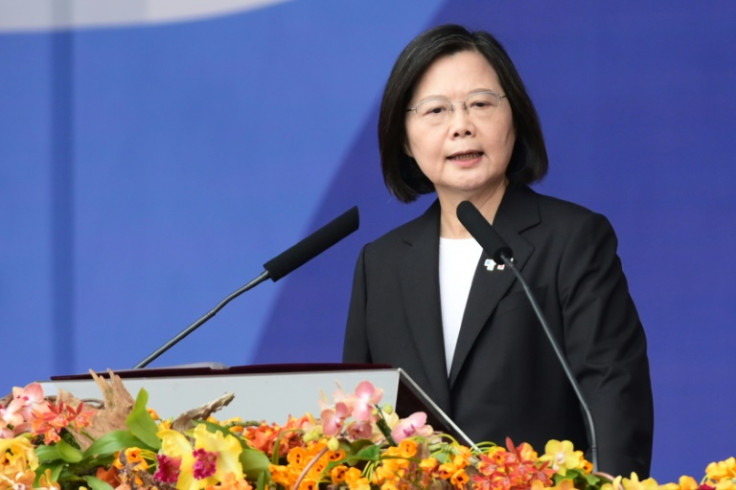
Former Taiwanese President Tsai Ing-wen stated in her keynote speech at the annual Halifax International Security Forum that the U.S. should prioritize aiding Ukraine before focusing on Taiwan. Her remarks, reported by Politico on Saturday, underscored the urgent need for support for Ukraine amid its ongoing war with Russia.
"They should do whatever they can to help the Ukrainians," Tsai said at the forum. "We still have time."
"A Ukrainian victory will serve as the most effective deterrent to future aggression globally'', Tsai added.
"We seem to be a very sensitive buyer," Tsai said. "Some people may have some hesitation or have to extend price before they agree to sell this weaponry. The United States seems to be more generous."
Tsai's suggestion comes as Adm. Samuel Paparo, the U.S. Navy commander in the Indo-Pacific, warned that the Pentagon's arms shipments to Ukraine and Israel are "eating into stocks" that could otherwise be used to address the growing threat from China.
Reports are rife that if Ukraine falls, Taiwan could be the next target. Rep. Michael McCaul (R-Texas), the outgoing chair of the House Foreign Affairs Committee, has expressed frustration with far-right members of his party who oppose U.S. aid to Ukraine. He has also criticized the Biden administration for being slow in its decision-making regarding support for Kyiv, arguing that this delay has weakened Ukraine's ability to resist Russian aggression.
Over the past year, partly in response to Trump allies who argue that U.S. support for Ukraine undermines American interests in the Indo-Pacific, the Biden administration has maintained that this support has not hindered the Pentagon's ability to prepare for a potential conflict with China.
In January of last year, U.S. Air Force Gen. Mike Miniham warned officers in a memo that he personally believed Beijing could initiate a war by 2025. The four-star general retired in September.
This year, the U.S. has allocated approximately $850 billion for defense, and experts anticipate that military spending could rise to nearly $1 trillion annually over the next decade.
This week, Ukraine's defensive war against Russia surpassed 1,000 days, with growing anxieties in Kyiv over President-elect Trump's potential return to the Oval Office. Trump has promised to pursue "peace through strength," but his criticism of U.S. spending on Ukraine has raised concerns in Kyiv and among its allies. They fear that his push to end the war could lead to painful concessions to Russian President Vladimir Putin.







